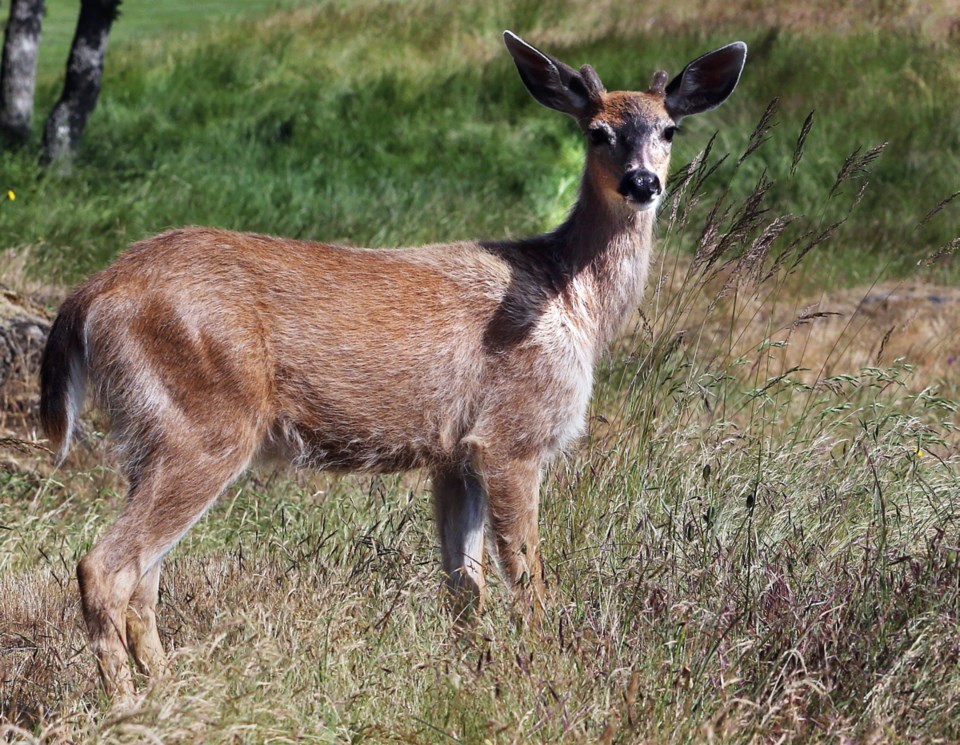Nearly half of Mayne Island residents would like the province to reverse its decision to open up hunting to anyone with a hunting licence.
Unlike the surrounding islands, Mayne Island was a no-hunting zone for decades until the province changed regulations to bring Mayne in line with other Gulf Islands, where hunting is permitted.
Residents opposed to hunting cite concerns about public safety on a small, densely populated island that is almost entirely privately owned.
Jim McKenzie started an anti-hunting petition signed by 407 people on the island, home to 950 people. Of those, 870 are age 19 and older, according to 2016 census data.
McKenzie brought his petition to local businesses to collect signatures. A similar online petition has attracted more than 500 signatures.
He said he started the petition after going for a walk with his wife near private properties and wondering if he would be in danger if hunters were nearby.
“Were we putting ourselves in a dangerous position? Should we be wearing bright clothes if we go for a walk in the future?” McKenzie asked.
Hunters must obtain permission from landowners to hunt on their properties.
But resident Debra Probert said many people live on small lots that are surrounded by larger lots.
“Even when you have permission on 10 acres, it’s dangerous because there are other properties around it,” Probert said.
Probert said she has heard of incidents in which residents have found hunters and dead deer on their properties since the regulations changed.
The hunters explain that they were hunting on other properties with permission when they wounded a deer, then followed it onto another property to kill the animal.
Prior to the regulation changes, a select group of local hunters had special permits to hunt fallow deer, a non-native species whose numbers might surpass the island’s human population. The deer are estimated at between 500 to 1,000, although biologists believe that number could be higher based on the number that are killed each year.
Between 2003 and 2016, roughly 1,600 deer were killed on the island, according to the Capital Regional District.
Probert said many on the island agree that the fallow deer are a problem, but they don’t see open hunting as the solution. They’re worried about visitors from off-island coming to hunt who don’t understand the density of the island.
They’re also concerned about the lack of an RCMP detachment to enforce the requirement to obtain a landowner’s permission to hunt.
Probert, McKenzie and others on the island are asking the government to reconsider the regulation changes.
“Right now, what we would like is to meet with [Forests Minister Doug] Donaldson and tell him we don’t want this and would he please just put it back the way it was,” McKenzie said.
Jordan Reichert, West Coast campaigner for the Animal Alliance of Canada, has been working with residents on the issue, and believes Mayne Island would benefit from an immunocontraception management strategy for fallow deer such as the one being implemented in Oak Bay.
The municipality is administering a contraceptive vaccine to does in an attempt to reduce the black-tailed deer population.
Provincial officials were not available for comment.



